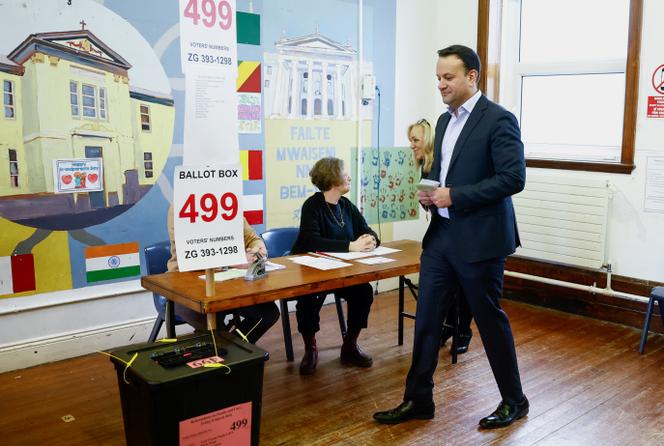


A dual referendum in Ireland on redefining family and women's roles in the Constitution has been defeated, Taoiseach Leo Varadkar said on Saturday, March 9. "I think it's clear at this stage, that the family amendment and the care amendment referendums have been defeated," Varadkar said at a press conference in Dublin.
Early tallies showed a trend towards a "No" vote and a defeat for the government. By 1200 GMT counting showed a trend towards a "No" on the two questions.
The two proposals, called the family amendment and the care amendment, aimed to make changes to the text of Article 41 in the Irish Constitution, written in 1937.
The first asked citizens to expand the definition of family from those founded on marriage to also include "durable relationships" such as cohabiting couples and their children. The second proposed replacing old-fashioned language around a mother's "duties in the home" with a clause recognizing care provided by family members to one another.
The Constitution, the core legal text of the nation, can only be modified through a national referendum with the support of the Irish people. The country of 5.3 million opted to end constitutional limits on same-sex marriage in 2015 and abortion in 2018.
Turnout was mixed when polls closed at 10:00 pm on Friday, reaching 50% in some parts of the country, but below 30% elsewhere, according to the national broadcaster RTE. Nearly 3.5 million people were eligible to cast their ballot.
All the major political parties support a "Yes-Yes" vote and until recently polls predicted a smooth passage for both on International Women's Day.
Varadkar, who heads the centre-right-Green governing coalition that proposed the questions, admitted this week that the results were "in the balance." After casting his vote in the capital Dublin, he urged people to vote "yes" to both questions because "all families are equal" and "family carers should be recognized in our Constitution."
In addition to the governing coalition and the main opposition party, Sinn Féin, women's rights and family carer groups have also urged citizens to "vote for equality." "We see these changes as small steps forward and therefore on balance have advocated a 'yes' vote," said leftist-nationalist Sinn Féin leader Mary Lou McDonald on Thursday.
But "No" campaigners argue the concept of "durable relationship" is undefined and confusing and that women and mothers are being "canceled" from the Constitution. Meanwhile, ultra-conservative voices argued the changes could constitutionally protect polygamous relationships and increase immigration via migrant family reunions – claims all denied by the government.
